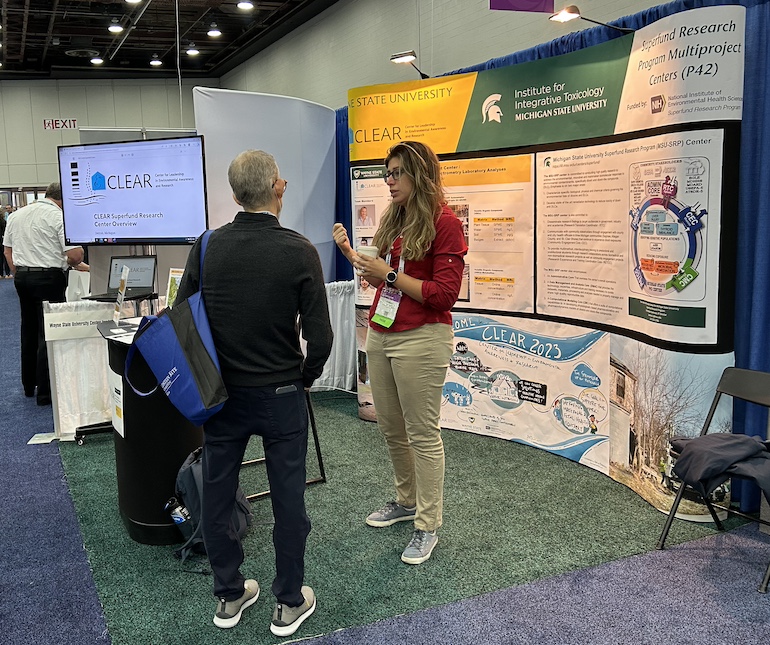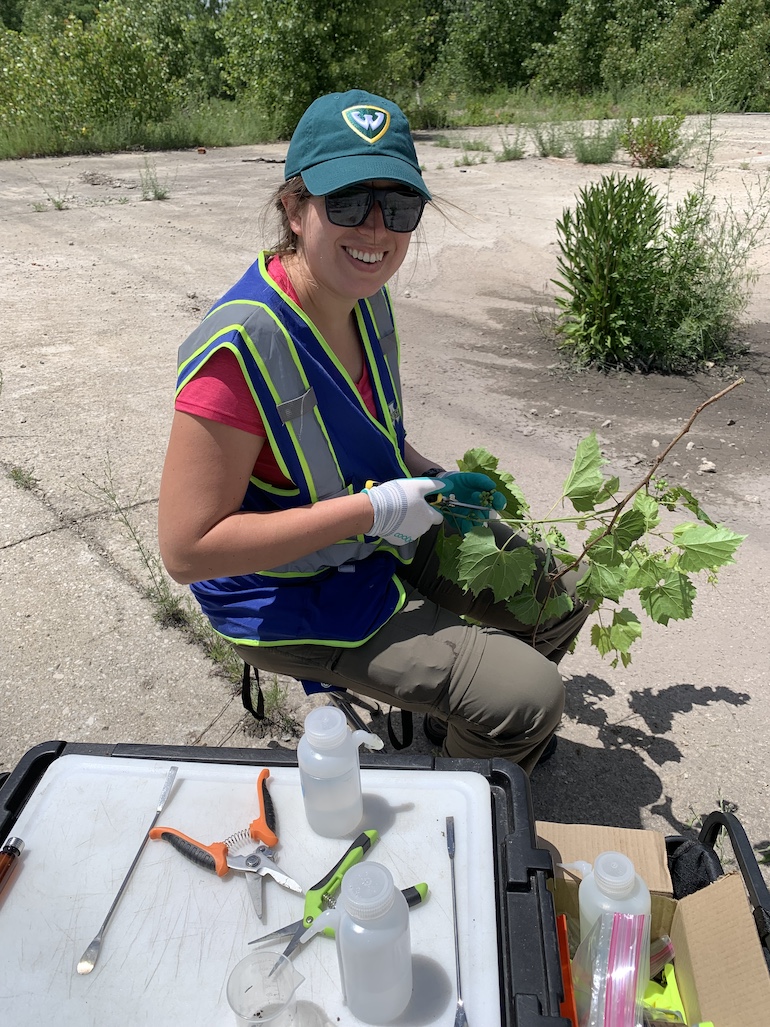CLEAR Trainee Spotlight: Sarah Black
Sarah Black is a CLEAR Trainee doctoral student in Biological Sciences at Wayne State University, working with Dr. Glen Hood (Project 1 - Field Study).
Please tell us about yourself and your work.
I am a doctoral student in the Biological Sciences Department at Wayne State University. I decided to pursue my doctoral studies after two pivotal professional and personal revelations. First, I had been involved with some large contamination clean-up projects while working at the U.S. Army Corps of Engineers as a regulator, and I kept wondering considering the ‘where’ and ‘how’ chemical contaminants were moving across landscapes even after those projects ended. Second, as news became more frequent about groundwater contamination on and surrounding military bases, I felt a moral imperative to pursue avenues for tracking and clean-up those areas to aid my loved ones living in those communities. Previously, I had trained in restoration ecology – the applied study of how to return an ecosystem to prior to a disturbance (such as humans) - from my Master's degree from Southern Illinois University, so the move to contamination studies seemed like a logical jump. When I met my advisor, Dr. Glen Hood, who as part of CLEAR studies phytoscreening - tracking of contaminations by using plants- I knew that Wayne State was a perfect place for me.
My research (re: my dissertation chapters) asks questions about plant uptake of contaminants at different scales- (1) how and which plants species uptake and store contaminants, (2) how do contaminants alter plant interactions with other individuals and species, and (3) how does this plant uptake affect humans through our food? The primary contaminants I focus on are volatile organic compounds (VOCs) and metals commonly associated with industrial manufacturing.
In my spare time, you can find me kayaking with my spouse Chris, planning my next trip “Up North,” or reading a fantasy novel.

Any big news lately?
Along with my advisor, Dr. Glen Hood, we won a grant from the One Health Initiative to pursue a project to understand how urban heat islands (patches of the city that are warmer than others due to the build environment) and air pollution interact on urban agriculture. We have partnered with 18 urban farms and community gardens around the city of Detroit to understand metal-uptake from air pollution along with any interactive effects by urban heat islands. We previously found that there is spatial variation to metal pollution around the city as transported by air, and we are asking how does this impact the vegetables grown within the city. We know that excess metals are often stored in different plant organs (such as lead in roots), but heat stress causing increased metal uptake- so we’re trying to understand the impact of these interactions for urban agricultural systems.

Annual Conference
What are your long-term goals?
In the long run, I would like to see phytoscreening become a more mainstream alternative to drilling wells for groundwater testing. As a more cost-effective and eco-friendly solution, I would like to see this practice accepted by state and federal regulators as a credible way to test for contamination. To that end, I envision that I will work for an agency or pursue research that is oriented towards sustainable solutions for contaminant clean-up and remediation, such as phytoscreening. Pursuing avenues that consider and integrate human and ecosystem health would be ideal for me. I would also like to visit all seven continents. Four more to go!

What has been the most exciting/fulfilling part about working with CLEAR?
To quote my favorite TV show, “Never doubt that a small group of thoughtful and committed people can change the world.” CLEAR has always promoted students like myself to dream big and consider the center as a creative outlet. Recently, there was a funding competition for students to invent pilot studies (contamination related) could alter the paradigm of our fields – if we work with someone outside of our normal team. Suddenly I was able to consider more seriously an idea (‘odorscape’- contamination disrupting sensory cues in plant communication with animals) and partner with chemists who could help me develop and bring it to reality. Working with CLEAR is a privilege because it promotes interdisciplinary lens that allows multiple people’s talents to shine while working on a common goal.
